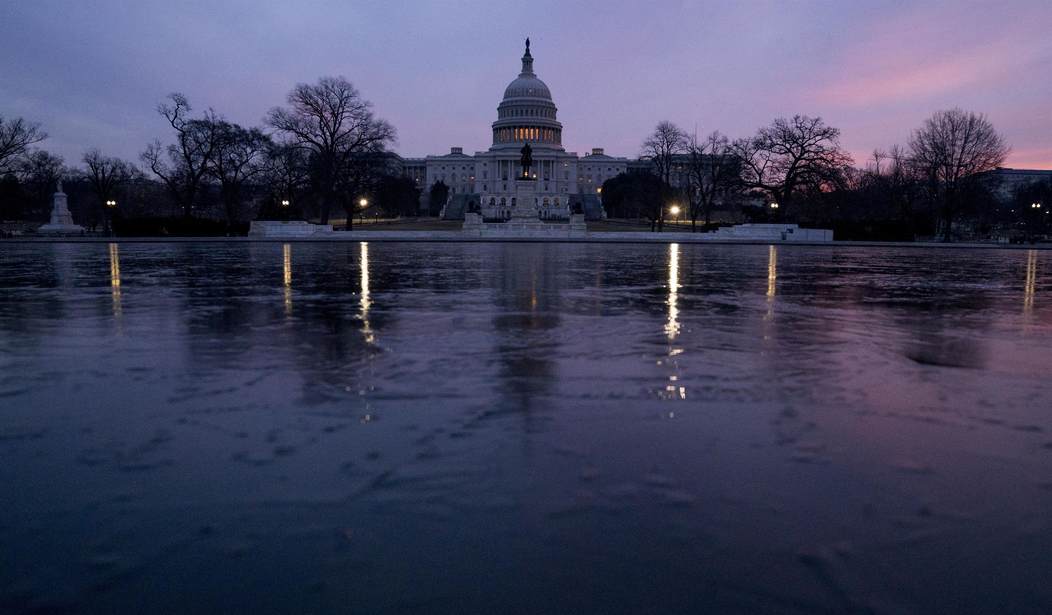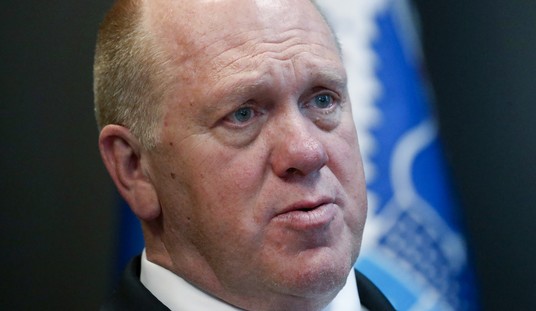The Congressional Budget Office has just released its mid-year update on the federal fiscal situation, and it portends a debt avalanche. But don't bother to tell Sens. Bernie Sanders and Elizabeth Warren that. They're busy advocating tens of trillions of dollars in new federal spending.
The new report shows that budget deficits are expected to remain in the $1 trillion territory for years to come. It appears that 13-digit deficits are the new normal in Washington, as spending inexorably keeps rising by hundreds of billions of dollars a year.
This spend-and-borrow forecast ranges from troublesome to panic-room sheer terror — depending on your perspective. I'm in the former, not the latter frame of mind for now — in part because Congress is anticipating a rate of growth of 1.8 percent annual growth, which is about one-and-a-half percentage points below our historical 3.25 percent growth. If Donald Trump can continue to grow the economy at a faster pace, the burden of this debt will at least stabilize.
But it is still vitally important to understand how we got into this mess and how we can start to gradually bend the debt curve down.
To listen to the Democrats, you would believe that the red ink is a result of the Trump tax cut. But look at the three numbers below and make up your own mind:
— 2017: $3.316 trillion
— 2018: $3.330 trillion
— 2019: $3.511 trillion (CBO projection, May 2019)
Recommended
These are the total federal tax collections as recorded by the Congressional Budget Office for 2017, the year before the Trump tax cut, and 2018 and 2019, the two years after the Trump tax cut. Notice that the 2018 number is $14 billion higher than the 2017 number. The 2019 revenues are nearly $200 billion higher than before the tax cut.
In 2018 and 2019, federal tax collections were higher than in any previous year in history. Most people outside of the Washington swamp would rationally conclude from this that we do not have a revenue problem in Washington.
What we do have is a binge-spending problem, and it's getting worse. Last year, Congress approved spending bills that lifted expenditures by some $128 billion. The year before that, the increase was $160 billion. So much for Republicans professing to be the party of limited government and balanced budgets.
The CBO numbers also tell us that while revenues are expected to rise gradually over time as a share of the national economy, the spending sprays off the Capitol dome like Old Faithful. Spending is expected to rise from 21 percent of GDP to 23 percent of GDP over the next decade, and to about 26 percent of GDP over the two decades after that.
Again, none of this even includes the added price tag for the tens of trillions of dollars in additional spending appropriated in the Democratic presidential candidate playbook to pay for Medicare for All, reparations, student loan forgiveness, free college, guaranteed income, and the Green New Deal.
My Heritage colleagues have drafted a playbook with reasonable spending caps and elimination of scores of wasteful and obsolete programs that would bring us to a balanced budget without taxes.
We don't have a revenue problem in Washington; we have a chronic overspending crisis. And if the Democrats on the debate stage these last few days take power, things are going to get a lot worse in a hurry.

























Join the conversation as a VIP Member